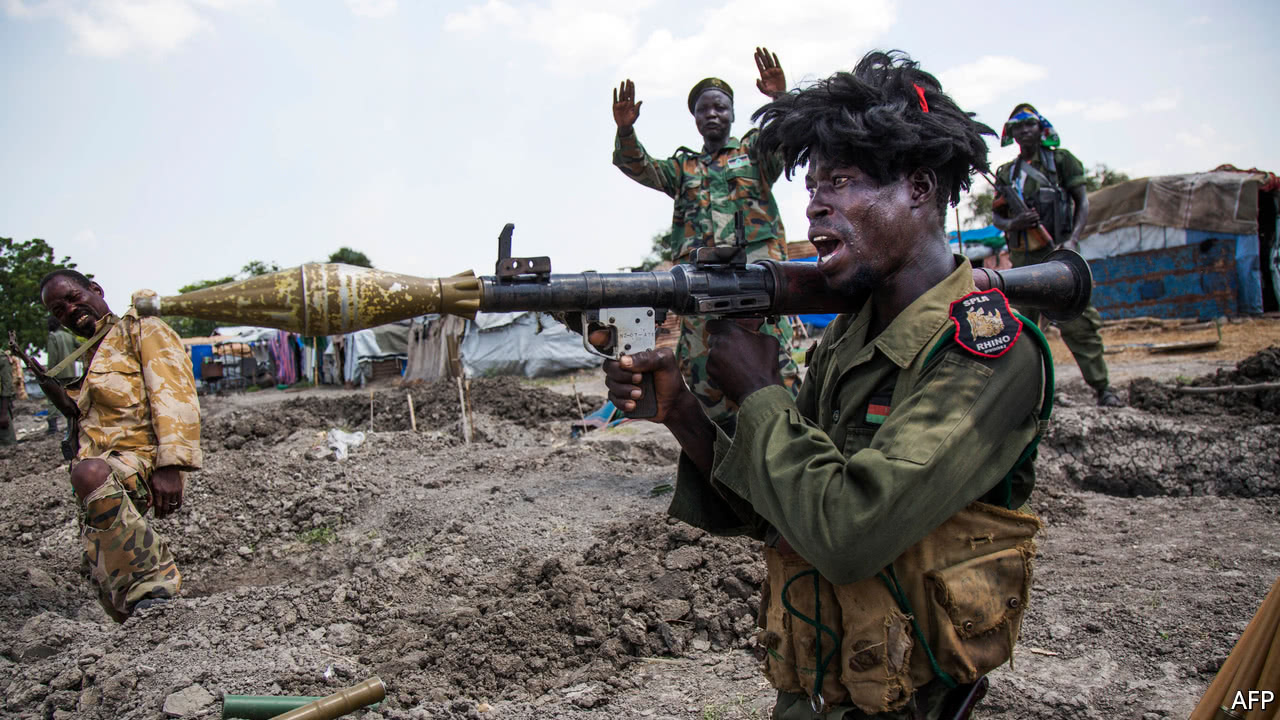The Economist explains: How the international community has failed South Sudan
Too many countries turn a blind eye to this troubled young state

HOW to solve a problem like South Sudan? Regional peacemakers gathering in Addis Ababa over the past fortnight have struggled again to find an answer. Despite a succession of peace agreements and international resolutions (indeed the peacemakers may sign something this week), fighting in the world’s newest country has now entered its fifth year. It erupted in 2013 after President Salva Kiir (a Dinka) sacked his deputy, Riek Machar (a Nuer), pitting the country’s two largest ethnic groups against each other in a deadly struggle for supremacy. Since then fighting has taken place across multiple fronts, as rebel groups have mushroomed across the country. Nearly a third of the population have fled their homes and over 5m face hunger. IGAD, the east African bloc leading the peacemaking efforts, brokered a ceasefire in December. But the South Sudanese government, which has the stronger military force, shows little interest in meaningful compromise. And without the credible threat of tough sanctions or a comprehensive arms embargo, violations of the ceasefire have become the norm. UN peacekeepers are present in the country, but overstretched. Why has South Sudan become another study in the international community’s failings?
UN peacekeeping missions need a host government’s permission to operate. But South Sudan, a country still less than a decade old, is especially prickly about threats to its sovereignty. Its government has repeatedly obstructed the work of UNMISS, the UN’s $1bn-per-year mission in South Sudan. It has refused, for example, to allow it to send troops to stop massacres (often because it is the government that is carrying out those killings). Government troops have attacked and killed UN personnel, and even shot down two UNMISS helicopters. An additional 4,000-strong regional protection force sent to defend Juba, the capital, last August was delayed for months in part because of wranglings over the scope of its mandate. The government still refuses to cede it control of the city’s airport.





